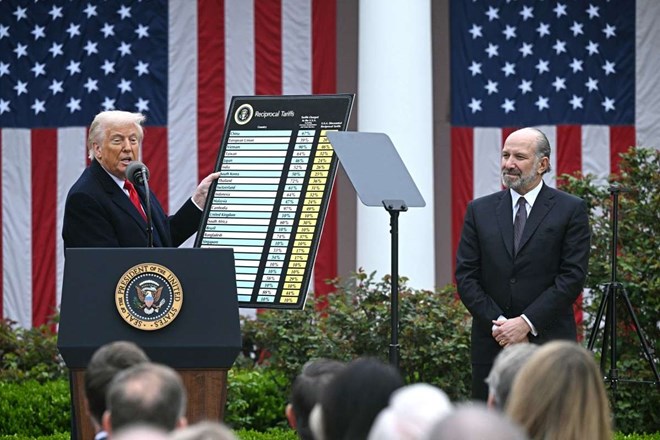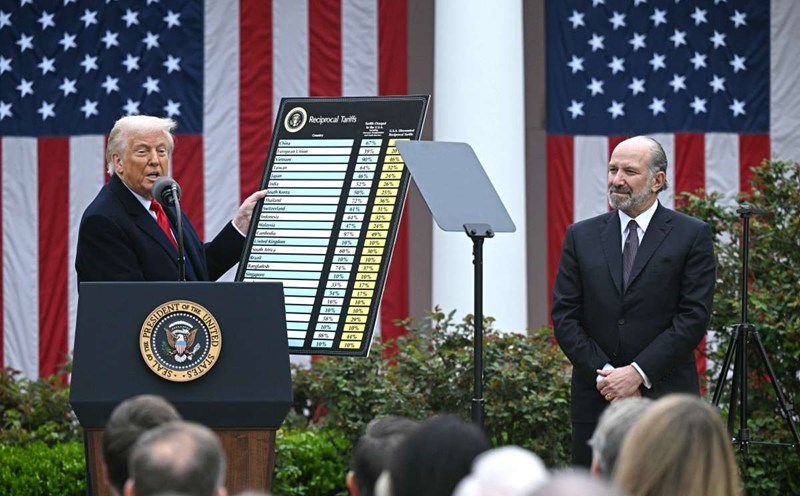CNN reported that although the US stock market closed in the green on the afternoon of February 4 (local time), until the evening of the same day, after President Donald Trump announced counterpart tax rates for 185 countries that were considered higher than expected, the indicators plummeted in the after-hours trading session.
The wave of immediately-advancing sell-offs caused the Dow Jones futures contract to fall by more than 1,100 points, equivalent to 2.7%. The S&P 500 futures contract fell 3.9%, while the Nasdaq 100 futures contract fell to 4.7%.
The US technology sector is also facing a similar situation, according to Reuters. More than $760 billion in equity of Magnificent Seven - a group of seven large technology companies including Apple, Amazon, Alphabet, Meta, Microsoft, Nvidia and Tesla - evaporated in the after-hours session.
Apple's stock, which was hit hardest by iPhone manufacturing in China, faced a significant decline when it hit a 7% decline, while Tesla fell more than 6%. These are considered the two companies with the strongest decline in the Magnificent Seven group, especially when Tesla has encountered many difficulties after the billionaire Elon Musk took on the role at the Department of Government Efficiency (DOGE).
The yield on the 10-year US Treasury note has also plummeted, currently believed to be at a 5-month low of 14 basis points to 4.04%. Investors believe that Mr. Trump's countervailing tax will slow down the US growth rate.

Wall Street has been concerned about Trump's tax policy, but some analysts expect the market to recover if the tax rate is announced less than expected.
However, that hope was quickly extinguished when Mr. Trump announced the imposition of a minimum tax of 10% on all imports, along with higher tariffs for some specific countries.
Portfounder of Argent Capital Jed Ellerbroek said that Mr. Trump's tax policy is being implemented much more drastically than most investors predicted 6 months ago, while warning that the stock market is about to enter a difficult period.
Mr. Trump's countervailing tax also creates strong fluctuations in the global currency market.
The US dollar has risen against most Asian currencies amid fluctuations in the foreign exchange market, except for the Japanese Yen - which is considered a safe-haven asset - which has surpassed 148 yen to 1 USD.
Meanwhile, the Chinese yuan hit a two-month low on the international foreign exchange market, before the domestic market opened. Japanese government bonds for 10 years saw their strongest increase in 8 months.
Gold prices also set a new peak, surpassing $3,160/ounce. Oil prices - an important indicator of global growth - fell more than 3%, bringing Brent oil prices down to 72.56 USD/barrel.











